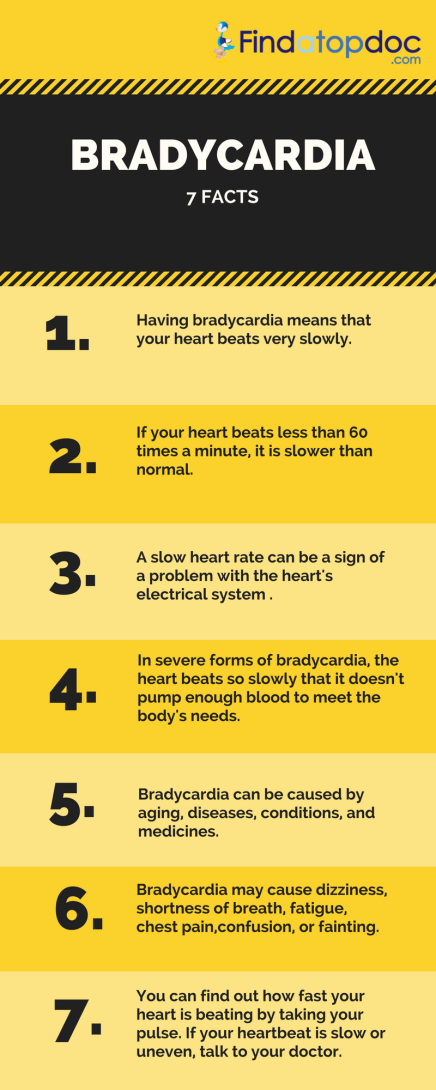
Source
Symptoms
A heart rhythm that's too slow can cause insufficient blood flow to the brain with symptoms such as:
- Fatigue or feeling tired or weak
- Dizziness or lightheadedness
- Fainting or near-fainting spells
- Some people may feel short of breathe
Bradycardia can be caused by:
- Changes in the heart that are the result of aging.
- Diseases that damage the heart's electrical system. These include coronary artery disease, heart attack, and infections such as endocarditis and myocarditis.
- Conditions that can slow electrical impulses through the heart. Examples include having a low thyroid level (hypothyroidism) or an electrolyte imbalance, such as too much potassium in the blood.
The treatment strategy for bradycardia depends on what is causing the slower than normal heart rate as well as the patient’s symptoms. If another medical problem, such as hypothyroidism, is causing a slow heart rate, treating it may indirectly affect bradycardia. Treating these problems with new medicines, or adjusting the doses of the medicines you are currently taking, may restore a normal heartbeat.